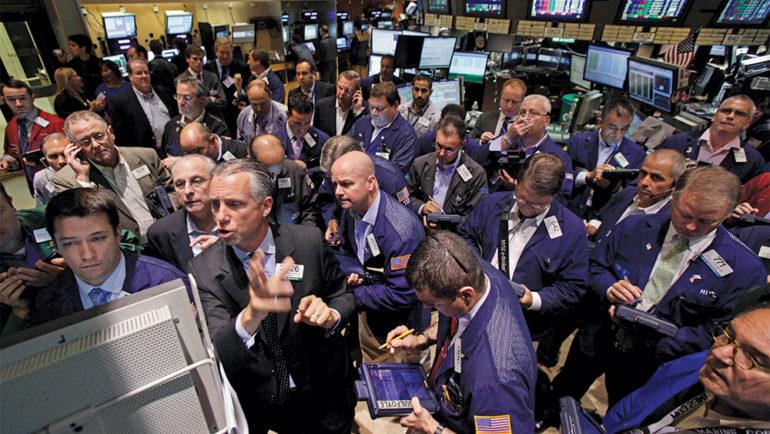Stock Buybacks Leave Firms Without Funds to Invest in Future (Column)
By Cynthia Littleton
LOS ANGELES (Variety.com) – Corporate giants on the S&P 500 have spent more than $720 billion during the past year on stock buybacks. Media and entertainment firms account for only a fraction of that spending, but even $1 million spent on share repurchases seems a foolhardy expenditure at this transformational moment for the industry.
The record level of spending on buybacks has drawn increasing scrutiny from investors, who question whether the practice is an effective use of corporate funds. Traditional media giants have no business plowing resources into stock buybacks at a time when the need for investment in R&D, infrastructure, IP and creative talent has never been greater.
As showbiz leaders adjust to a new world order and the competitive threat from Netflix, et al., surely the largest media companies can find better ways to invest profits than buying up their own shares. Diverting even a small portion of the buyback billions to wage and salary increases for rank-and-file employees would undoubtedly pay off over the long run in terms of increased productivity and better morale.
Buybacks have been positioned as being good for shareholders because they can buoy a company’s stock price and increase earnings per share. That plumps the value of a shareholder’s portfolio and theoretically increases the potential for dividends. By taking shares off the market in significant numbers, earnings per share will naturally increase for the remaining stockholders because those profits are split among a smaller pool of shares. Buybacks also have tax advantages for companies and shareholders as compared with quarterly dividends.
But detractors say buybacks can become a numbers game that gives the illusion of increased profits. Because so many senior executives have their compensation tied to earnings-per-share growth and stock-price gains, management at times has a counterproductive incentive to spend money on share repurchases rather than directing funds back into the company in long-term-growth initiatives. In some cases, companies have relied on short-term loans to fund buybacks, usually when management believes shares are ridiculously undervalued and poised to rise.
The embattled General Electric, former parent company of NBC, has become the poster child for how buybacks can ultimately be a waste of precious corporate resources. GE spent a staggering $40 billion on share repurchases between 2015 and 2017, according to an analysis by financial writer Martin Hutchinson published by Marketwatch. The shares were bought at prices ranging from $20 to $32. The stock closed Jan. 11 at $8.94. That means GE flushed at least $23 billion down the drain at a time when management must have had an inkling of the potholes the company would be facing.
Corporate stock buybacks were effectively barred by the Securities and Exchange Commission until 1982 out of fear that firms would use them to manipulate the market for their shares. Now companies have to receive board approval for buyback programs, and there are strict disclosure rules.
spent $40 billion on share repurchases at prices ranging from $20 to $32. The stock closed Jan. 11 at $8.94. That means GE flushed at least $23 billion down the drain.”
But many still see potential pitfalls in the process. Sen. Tammy Baldwin, D-Wisc., introduced legislation last year to curb share repurchases, calling them a big factor in wage-growth stagnation at companies under pressure to deliver quarterly earnings growth.
According to an analysis by S&P Dow Jones Indices, the buyback binge has been gaining steam for several years. Over the first nine months of 2018, buyback activity set records every quarter. In last year’s third quarter, spending on share repurchases spiked 58% from the year-ago quarter to a record $203.8 billion.
For the 12-month period ending in September 2018, share repurchases hit a record $720.4 billion, up 39.1% from the comparable period in 2016-17. Some of that activity was fueled by federal tax reform legislation passed in late 2017, which provided a windfall to corporate entities by reducing their overall taxes.
Apple has been one of the biggest self-spenders, pouring some $22 billion into share repurchases in the 12 months ended in September. That accounts for nearly half of the $51.5 billion the tech giant has devoted to buybacks during the past 10 years.
Comcast, Disney and are among the industry behemoths that used their tax-reform savings to provide one-time bonuses to workers. Those three companies have also hit the pause button on their existing stock buyback authorizations, since they’re now focused on financing big M&A transactions and paying down debt.
Let’s hope others in the fast-changing media and entertainment sector take heed and look for bold ways to invest in the future. Media companies that don’t have a strategic vision for investing spare profits should be looking for new leadership, not checking the stock price every five minutes in the hunt for ephemeral gains.
“Strictly Business” is business editor Cynthia Littleton’s new monthly column examining issues and trends developing in the media and entertainment industries. Littleton also co-hosts the weekly “Strictly Business” podcast with Variety co-editor-in-chief Andrew Wallenstein.

